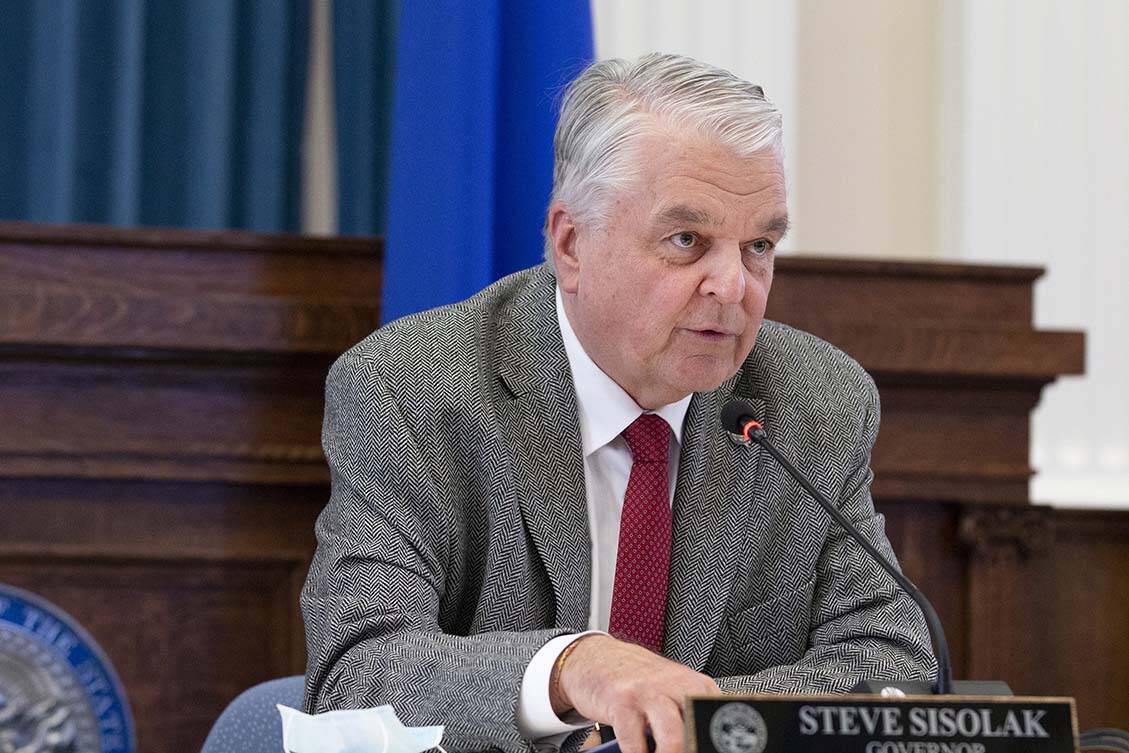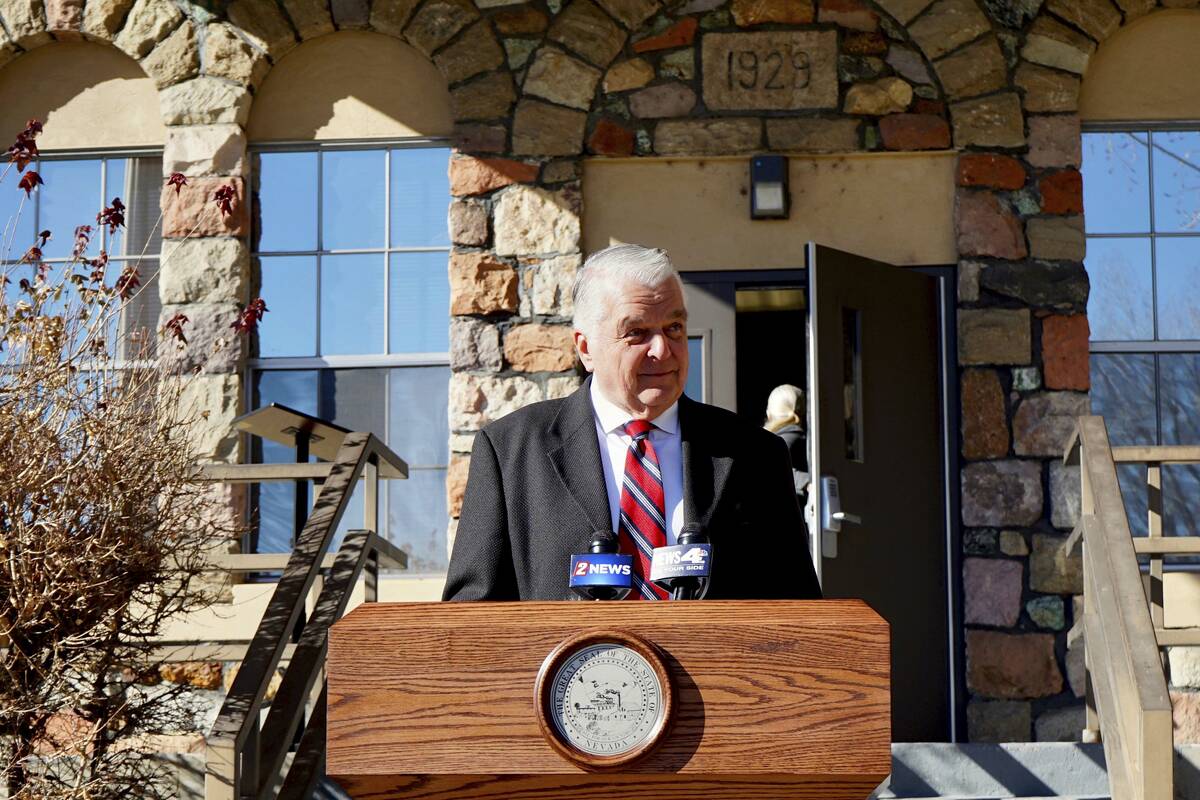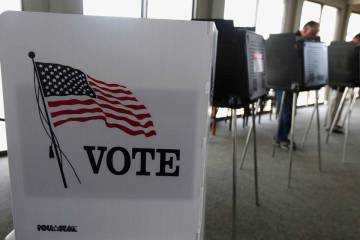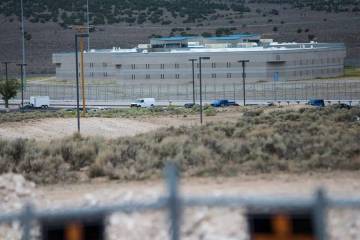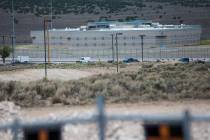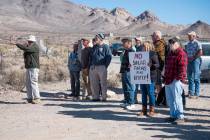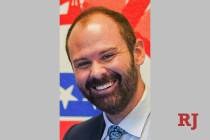Sisolak apologizes for Nevada’s role in Indigenous schools
For nearly a century, the Stewart Indian School in Carson City served as an institution of cruelty. Indigenous children were taken from their parents and loaded onto trains and buses destined for the boarding school, where they were abused and were forced to assimilate. Officials believe students might have secretly been buried in the grounds.
Nevada, for its part, helped the federal government gather some of the children and helped fund the school, which operated from 1890 to 1980. Bounties were offered to capture runaway children.
Standing on “Indian sacred land” outside the school Friday, and flanked by tribal leaders, Gov. Steve Sisolak grew emotional as he apologized on behalf of the state.
“Let me say clearly that the story of Nevada for the Native people who were originally here is grim and cannot be glossed over with mere words,” he said. “The federal government established a policy to kill the Indians to save the man.
“It is on behalf of the state that I want to make an apology. This policy was abhorrent, and we need to make amends, now — full stop.”
Following the discovery of 215 unmarked graves on the grounds of a Canadian boarding school this year, Secretary of the Interior Deb Haaland, the first Native American to serve as the agency’s leader, announced a “comprehensive review” into the roughly 350 such facilities that operated in the U.S. in an effort unearth records with “emphasis on cemeteries or potential burial sites.”
Just issuing a proclamation would not be enough to right the wrongs, Sisolak said.
That is why his administration, in conjunction with Nevada tribal leaders, have requested records of the schools the federal government had been reluctant to share in past years, he said. If asked, Sisolak said, Nevada would provide resources to search for possible burial grounds.
“It’s a priority for us to acknowledge what happened here and to find out any information we can so that we could help to provide some closure for the tribe and their members,” Sisolak said.
Stacey Montooth, executive director of the Nevada Indian Commission, said indigenous leaders have sought records on who attended the school, where they came from and what tribe they belonged to.
“At minimum,” 20,000 children were taken to the boarding school in Nevada, she said.
When the Carson City campus closed, the only such school in Nevada, “the federal government had no transition plan. They basically changed the locks and took all the records with them, so we don’t have even student attendance information,” Montooth said. “However, please keep in mind, it was not Uncle Sam’s priority of the Native people they sent there.”
Abuse, starvation
In a private meeting before his remarks Friday, Sisolak met with the Nevada Indian Commission, tribal leaders and elders who attended the school. Representatives from the Department of the Interior joined remotely.
The group heard harrowing stories about the abuse at the boarding school. A woman said she escaped the school three times because she faced starvation, Sisolak said. She had shared a dorm room with upward of 200 other girls.
The practice of assimilating Native Americans began with the Indian Civilization Act of 1819 and continued through the 1960s, according to a three-page memo the department issued in June.
The goal was to assimilate Native children by taking them to far-away locations. Their Native languages and beliefs were “forcibly suppressed.” Their parents, who did not know where they were taken, were not allowed to visit, the memo said.
“Many students endured routine injury and abuse,” Haaland wrote in the memo. “Some perished and were interred in unmarked graves. Survivors of the traumas of boarding school policies carried their memories into adulthood as they became the aunts and uncles, parents, and grandparents to subsequent generations.”
The U.S. must reckon with that past, she wrote — “Only by acknowledging the past can we work toward a future we are all proud to embrace.”
Sisolak said he was deeply affected by the meeting with tribal leaders.
“This cut right to my heart, when I heard the stories,” he said, holding back tears. “It was a dark moment in Nevada history.”
Federal investigation
The federal Indian Boarding School Initiative demands that investigators collect records from federal repositories and nongovernment organizations to paint a picture of what occurred at the schools: attendance, plans, statistics, maps and photos, “which may later be used to assist in locating unidentified human remains,” the memo said, noting that tribe leaders must be consulted.
“Many who survived the ordeal returned home changed in unimaginable ways, and their experiences still resonate across the generations,” the memo said. “The work outlined above will shed light on the scope of that impact.”
The deadline for a report on the investigation is April 1.
The tentacles of the abuse and the directive to “kill the Indian, save the man,” resonate till this day, said Montooth, noting that she is the direct descendant of one of the school’s survivors.
“That despicable policy is still impacting our tribal nations, our urban Indians today,” she said. “There’s not a Paiute, a Shoshone or a Washoe person in the state who doesn’t have a direct connection to this campus.”
At a little more than 50,000, Natives make up 1.7 percent of Nevada’s population, according to census data.
Amber Torres, chairwoman of the Walker River Paiute Tribe, said that state lawmakers need to advance legislation to tell “the true story of who we are as a Native people, and our ancestors, and everything that happened needs to be told to everyone. And it needs to be heard loud and clear.”
Contact Ricardo Torres-Cortez at rtorres@reviewjournal.com. Follow him on Twitter @rickytwrites.



